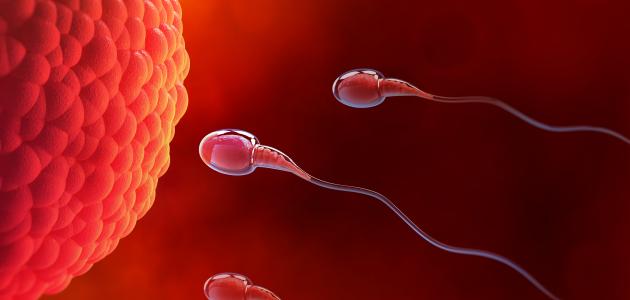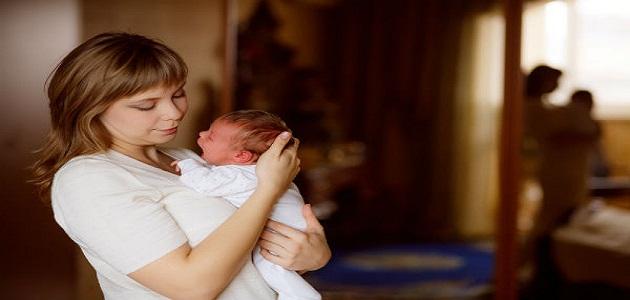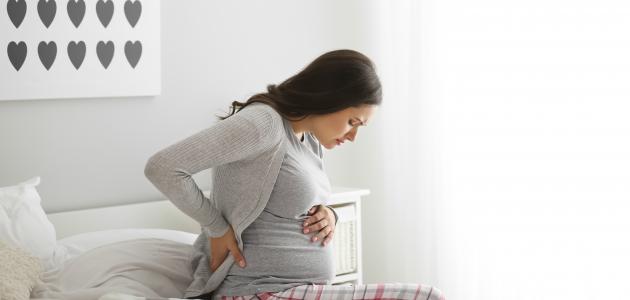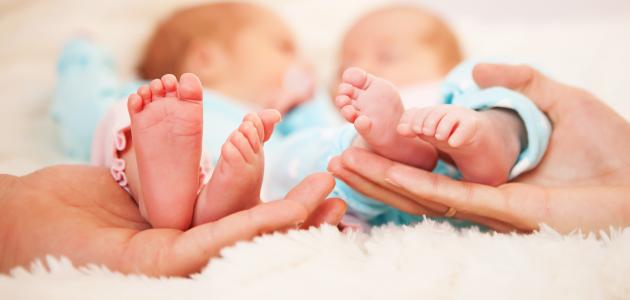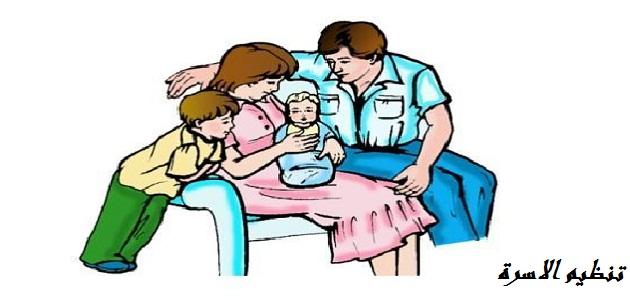Contents
Pregnancy
Pregnancy is a term used to describe the period during which a fetus develops in a woman's uterus, and is usually estimated from the woman's last menstrual period until birth, about 40 weeks, or just over nine months. [1]
How to get pregnant
In fact, pregnancy is a complex process that includes many steps and stages. In order for pregnancy to occur, the sperm must meet and the egg , to form a fertilized egg . Here's a breakdown of how this happened. [2]
ovulation
Ovulation occurs when a mature egg is released from one of the follicles in the ovary (in Ovary), and that egg is pushed down the fallopian tube, to be available for fertilization. After the egg leaves the vesicle, that vesicle develops into what is known as the corpus luteum, which releases the hormone progesterone , which is responsible for thickening the lining of the uterus and preparing it for implantation, and the ovulation process generally occurs. On any day between day 11 to day 21 after the start of the last menstruation, where ovulation can occur on a different day each month during this period called the fertile period , during which it is preferable to have intercourse during which it increases the chance of pregnancy.[3]
Fertilization
The semen in each ejaculation contains about 200-600 million sperm, 200 of which are able to swim through the vagina and uterus to reach the fallopian tube, and the fertilization process occurs upon penetration One of the sperm of the egg, where some changes occur in the outer egg membrane, which prevents any other sperm from entering, and it can be said that the genes and sex of the embryo are determined at this stage, where the child is male if the sperm has a Y chromosome, and he is female if he has The X chromosome, and it is worth noting that if fertilization does not occur, the egg moves from the fallopian tube towards the uterus and dissolves, and the thick endometrial lining also sheds, leading to menstruation . [4] [5]
Implantation
After 24 hours of fertilization, the fertilized egg begins to divide rapidly into many cells, as it moves through the fallopian tube towards the uterus, and it may take 3-4 days for it to reach the uterus, and the dividing cells form what is known as the blastocyst. , Which later forms the embryo and the placenta, and this group of cells may remain in the uterus for another two to three days, until it attaches to the lining of the uterus during a process known as implantation, and after implantation, the fertilized egg releases hormones Pregnancy, which prevents the endometrium from shedding and menstruation. [4] [2]
Stages of pregnancy
Pregnancy goes through three stages, or three trimesters, each lasting approximately three months, and the following is an explanation for each of them: [6] [7]
- The first trimester: It is the first 13 weeks of pregnancy, as this counting time starts from the first day of the last menstruation, and the woman's body at this stage undergoes tremendous changes, as hormone levels change greatly, and the uterus begins to support the growth of the placenta to transport oxygen and nutrients to the fetus, Which develops rapidly at this stage, and these changes are accompanied by the emergence of many early symptoms and signs of pregnancy , the first of which is the absence of a menstrual period, and other symptoms include the following:
- Feeling of fatigue and general fatigue.
- Feeling nauseous, especially during the morning, with vomiting sometimes.
- Constipation.
- Headache.
- Increased heart rate.
- Feeling of pain when pressing on the breast.
- The second trimester: This phase lasts from week 14 to week 26, and among the most important events in this stage: the beginning of a pregnant woman’s feeling of fetal movement, which often begins in the twentieth week, and it is worth noting that most early pregnancy symptoms will gradually disappear during this period, However, other new symptoms begin to appear, such as:
- Feeling of pain or cramps in the legs.
- A feeling of burning in the stomach .
- Increased appetite.
- Gain weight faster.
- The third trimester: This stage extends from the 27th week to birth, and during this period the fetus begins to build up fat stores, and develops the lungs, the senses of hearing, sight and smell, and it is recommended at this stage to continue visiting the doctor more frequently, and in the last pregnancy the following symptoms may appear:
- Feeling of pain in the back.
- Difficulty sleeping.
- Urinate more frequently, as a result of increased pressure on the bladder.
- The occurrence of contractions or early contractions several days or weeks before childbirth, which are not labor contractions, and are known as Braxton Hicks contractions .
Tips on how to get pregnant
Pregnancy may occur in some couples simply and without planning it, and it may take some time for other couples. Here are some tips on how to conceive: [8]
- Predicting ovulation: In fact, the ovum is available for fertilization after ovulation for a period of 12-24 hours only, and the sperm lives inside the female reproductive system five days after intercourse under the right conditions, so knowing the date of ovulation has an important role in increasing the likelihood The occurrence of pregnancy, and the date of ovulation can be predicted in women by knowing the signs and symptoms of ovulation, such as:
- Changes in vaginal secretions: vaginal secretions increase before ovulation and are liquid and transparent, and immediately after ovulation, the cervical mucus decreases and becomes thicker, and it is less transparent.
- Basal body temperature changes: The basal body temperature is taken every morning using a thermometer designed for this purpose, as it rises slightly during ovulation, and a woman is most fertile within two or three days before the temperature rises.
- Increase fertility: To improve the chances of pregnancy and increase fertility, the following simple tips can be followed:
- Have regular sexual intercourse close to ovulation.
- Maintaining a normal weight, as significant weight gain or decrease in women may increase the risk of ovulation disorders.
- Avoid smoking and drinking alcohol.
- Not to do excessively strenuous exercise.
- Cut back on caffeine.
References
- ↑ "About Pregnancy" , www.nichd.nih.gov , Retrieved 21-9-2018. Edited.
- ^ A b "How To Pregnancy Happens" , Www.plannedparenthood.org , Retrieved 21-9-2018. Edited.
- ↑ "How Pregnancy Occurs" , americanpregnancy.org , Retrieved 21-9-2018. Edited.
- ^ A b "Pregnancy And Conception" , the www.webmd.com , Retrieved 21-9-2018.
- ↑ "Conception: fetal development" , www.babycentre.co.uk , Retrieved 21-9-2018. Edited.
- ↑ Christian Nordqvist (23-1-2017), “What to expect during pregnancy” , www.medicalnewstoday.com , Retrieved 21-9-2018. Edited.
- ↑ Tracy Stickler, Kathryn Watson (27-2-2017), "Trimesters and Due Date" , www.healthline.com , Retrieved 22-9-2018. Edited.
- ↑ Mayo Clinic Staff (2-11-2016), "Getting pregnant" , www.mayoclinic.org , Retrieved 22-9-2018. Edited.
